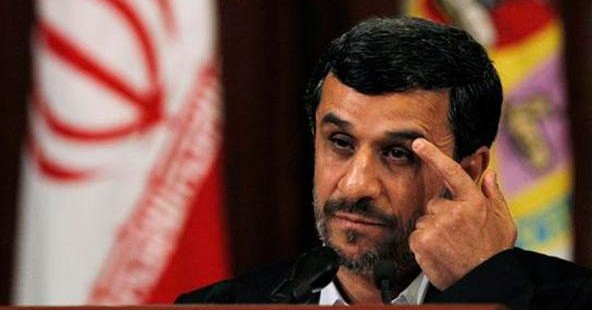
Sanctions: Will Iran Redouble Its Nuclear Efforts?
Iranian oil, American diplomacy, and Asian economic power combined last week to yield a highly unstable, potentially combustible cocktail. The American economy and the financial markets have much to be thankful for so far in 2012, particularly as we look across the Atlantic. But the Iran crisis, rooted in the nation’s nuclear intentions, could upend the fragile American recovery, and in the worst of outcomes, the economy will be the least of it.
Reading the daily newspapers last week was like dipping into a John Le Carré novel. Here’s the chronology:
• On Sunday Iran announced that it was about to begin enriching uranium at a second nuclear facility, one less prone to sabotage by any outside power unwilling to accept Iran as a nuclear-capable nation. President Obama had just signed into law a bill providing forstringent sanctions on Iranian oil exports. In response, Tehran has said it will close the Strait of Hormuz, through which a fifth of the world’s crude is shipped.
• On Monday an Iranian court sentenced an American to death on charges that he was spying for the Central Intelligence Agency. Amir Mirzaei Hekmati, a 28-year-old ex-Marine, does have some curious credentials, including work on Middle East war games and language training for the Defense Advanced Research Projects Agency.
• On Wednesday, a bomb exploded and killed Mostafa Ahmadi Roshan, a 32-year-old Iranian nuclear official, as he was driving to work during Tehran’s morning rush hour. Roshan was the fifth nuclear scientist to be killed in Iran since 2007. There is widespread speculation that Roshan and the others are victims of an Israeli campaign against Tehran’s nuclear elite.
• Also on Wednesday, U.S. Treasury Secretary Timothy Geithner arrived in Beijing for talks with Chinese leaders on the Iranian situation. China derives about 10 percent of its crude oil needs from Iran and is heavily invested in the Iranian industry. Prior to Geithner’s arrival, the Chinese made it plain that they wanted no part of an effort to cut off Iranian oil exports. “We oppose pressuring or international sanctions, because these pressures and sanctions are not helpful,” said Cui Tiankai, a senior foreign ministry official. “They have not solved any issues. We believe these problems should be solved by dialogue.”
• On Saturday, fresh from his chat with Geithner, Chinese Premier Wen Jiabao flew to the Middle East for talks with Saudi Arabia, Qatar, and the United Arab Emirates. The speculation among Americans is that Beijing may be willing to change its policy on Iran if its imports from Iranian oilfields can be made up elsewhere.
To my mind, all this is a forlorn effort, wrongheaded for a number of reasons. Sanctions, covert operations, and other such efforts will succeed in antagonizing the Iranians but won’t move them toward reforming their nuclear policy. Anyone who knows Iran knows it is an intensely nationalistic, prideful nation, and if the Western package of sanctions succeeds in accomplishing anything, it will be to persuade the Iranians to redouble their nuclear efforts.
In effect, the Iran situation has become a cold shower for Americans. The reality is that nations such as China, India, and Russia now represent alternative markets that did not exist, say, 25 years ago. Western prerogative is thus altered in situations such as this. China and India are large consumers of Iranian oil; without their participation, sanctions have little hope of working at all.
Nobody knows what Wen Jiabao intends to get done in the Middle East. Certainly it is possible that he will bargain for larger oil shipments from the nations he is visiting because China, which accounts for 20 percent of Iran’s 2.15 million barrels of exports daily, can reduce its dependence on Iran. But full participation in Washington’s new package of sanctions? China has held fast since the 1950s to the principle of noninterference in the internal affairs of other nations, and it is doubtful it will put that aside now. This was Cui Tiankai’s message.
Equally, there are the capabilities of the Saudis, Qatar, and the Emirates. They have already said they are ready and willing to increase production and draw from stored reserves of roughly 30 million barrels. However, they have also said they could not sustain the increased production for more than a couple of months.
The likelihood is that Beijing will do just enough to show that it is making the requested effort without cutting its supply lines in Iran completely. The same goes for other Asian nations, including Japan (which buys 17 percent of Iran’s total exports), India (16 percent), and South Korea (9 percent).
The fatal flaw in the West’s strategy toward Iran is something nobody much wants to talk about. Remember “deterrence,” that totemic term from the Cold War? Being as well armed as the Soviets was considered the key to American safety for decades. It may be an expensive and unattractive alternative, but deterrence worked.
This is our problem with the Iranians. Israel possesses a nuclear capability—this is all but officially stated. And so long as it has it, a hostile neighbor such as Iran is going to want it, too. We Americans invented deterrence and we believed in it. Just because it is now applicable in an inconvenient circumstance does not mean it is any less valid.
This leads to the only realistic approach to Iran as it pursues its nuclear program, whether a weapon or electric power is the object of the effort. It is to turn down the volume and negotiate. This can be through the members of the U.N. Security Council (which Iran invited to talks last week), or through the International Atomic Energy Agency (which Iran has recently invited for another inspection visit).
The kind of brinksmanship that has arisen over the last couple of weeks is pointless. It already has the markets nervous. The potential damage it can do beyond that is, in the worst of outcomes, incalculable.

